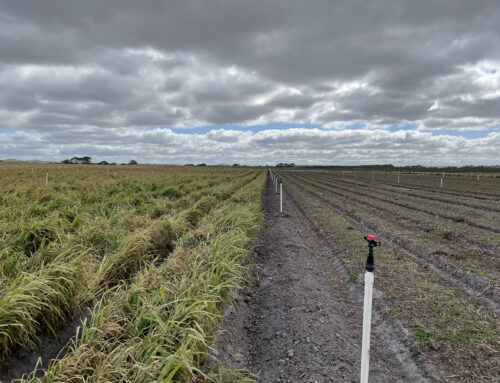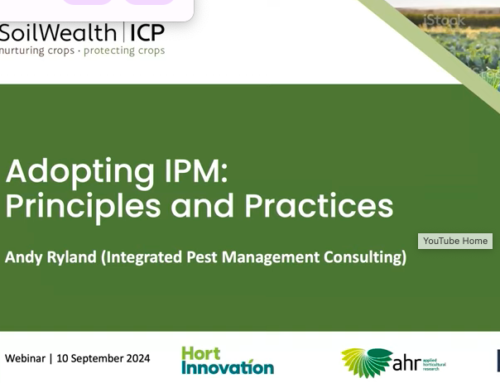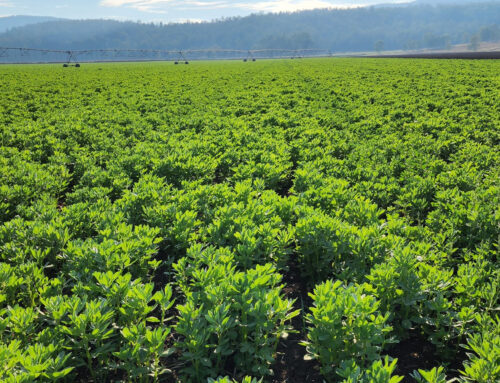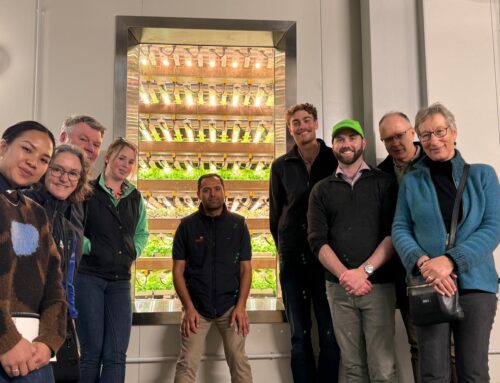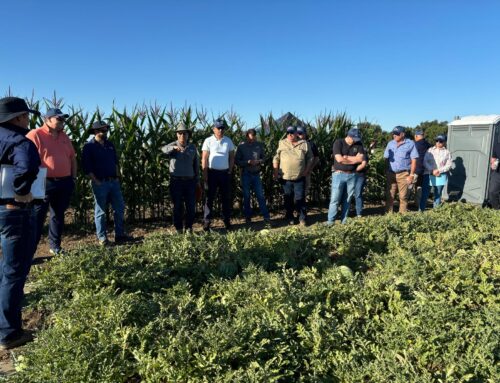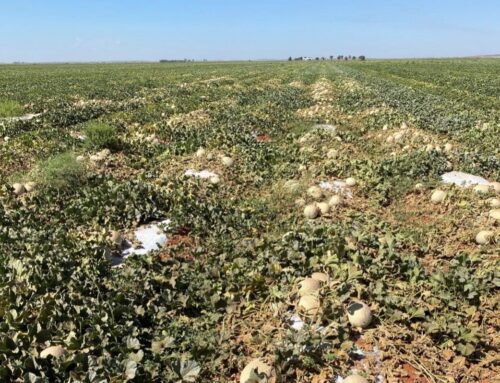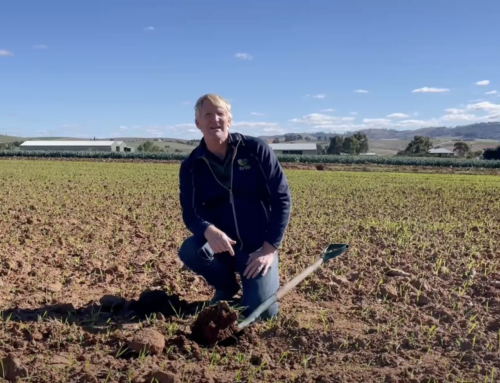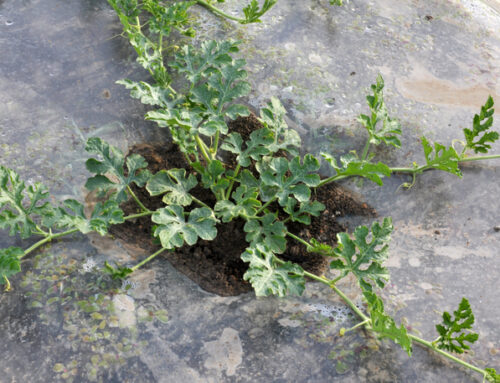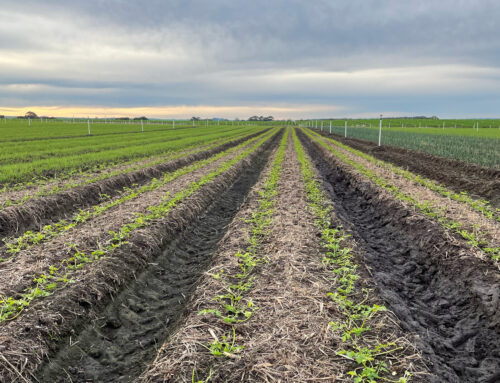Soil biology, with its vast complexity and diversity across regions, delivers many key functions to soil. It is influenced by farming practices, climate and soil conditions. Soil chemistry and the soils’ physical condition interact with soil biology. Together, these three aspects are the components of soil health.
Understanding how soil biology can be nurtured to best support healthy crops is important.
Recognising its significance, the Soil Wealth ICP and PotatoLink teams held a masterclass in Gatton, Queensland to provide growers, agronomists and others in the industry an opportunity to examine the theoretical and practical aspects of managing soil biology in vegetable and potato production.
About the masterclass
The masterclass had several objectives, including offering networking opportunities to participants, explaining how to maintain healthy soil biology, re-building soil health post-harvest, and filling knowledge gaps.
It helped to foster knowledge exchange between industry representatives and growers, encouraging conversations and discussions about soil health challenges and management options.
The program addressed various aspects of soil biology, including the impact of tillage, composting, soil amendments, cover cropping, fumigation and agrichemical applications.
Additionally, participants explored the diversity of biological products available and gained insights into soil biology testing capabilities.
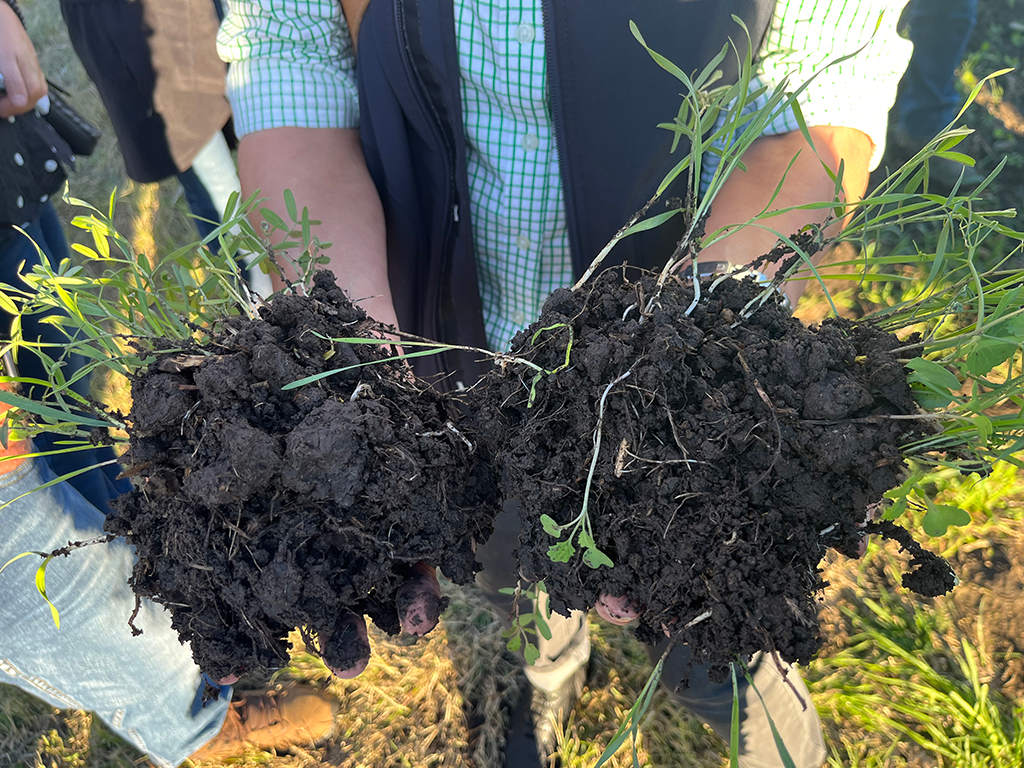
Cover crop mix (containing ryecorn, triticale, mustard, vetch and field pea) with aggregates supporting a good soil structure.
Activities
Day 1: Knowledge building and looking at practical applications
Participants attended sessions with experts delivering presentations on the fundamentals of soil biology, biomass breakdown, fumigation techniques, disease suppression, and the use of biological products.
Discussions on day one highlighted that:
- Soil is incredibly diverse, containing a range of microbes and fauna, each playing a role and competing for resources.
- Soil biology and soil organic matter (OM) are strongly linked, with OM providing food for soil biology, helping to build soil structure, and supporting nutrient cycling.
- Activities such as crop residues, cover crops and compost can add OM to the soil, while other activities such as fallow, cultivation and erosion can deplete OM from the soil.
- Both chemicals and biofumigation have toxic effects on soil biology, but after some time the populations begin to rebuild.
- Soil health can reduce soilborne disease incidence across a broad spectrum of pathogens.
- Biological products are derived from a range of different sources and efficacy of those products is only guaranteed for registered biopesticides. Suggestions include checking availability of registered biopesticides first, before considering unregistered biopesticides.
Participants had the opportunity to visit the Metagen lab, where they explored soil biology testing methods. Additionally, a site visit to a Mulgowie Farming Company provided valuable insights into practical applications of soil health management.
Day 2: Applying lessons learned on-farm
The second day of the masterclass featured a panel discussion on soil biology monitoring. Participants learned about the services provided by organisations such as SARDI (pathogen DNA testing of soils and plants) and Metagen (testing for pathogens, beneficial microorganisms, and the overall soil microbiome).
A case study from Mulgowie Farming Company highlighted their approach to maximising soil cover, minimising disturbance via no or minimum tillage and increasing organic matter.
Participants also took part in scenario-based activities, where they worked in smaller groups to develop action plans for various farming situations.
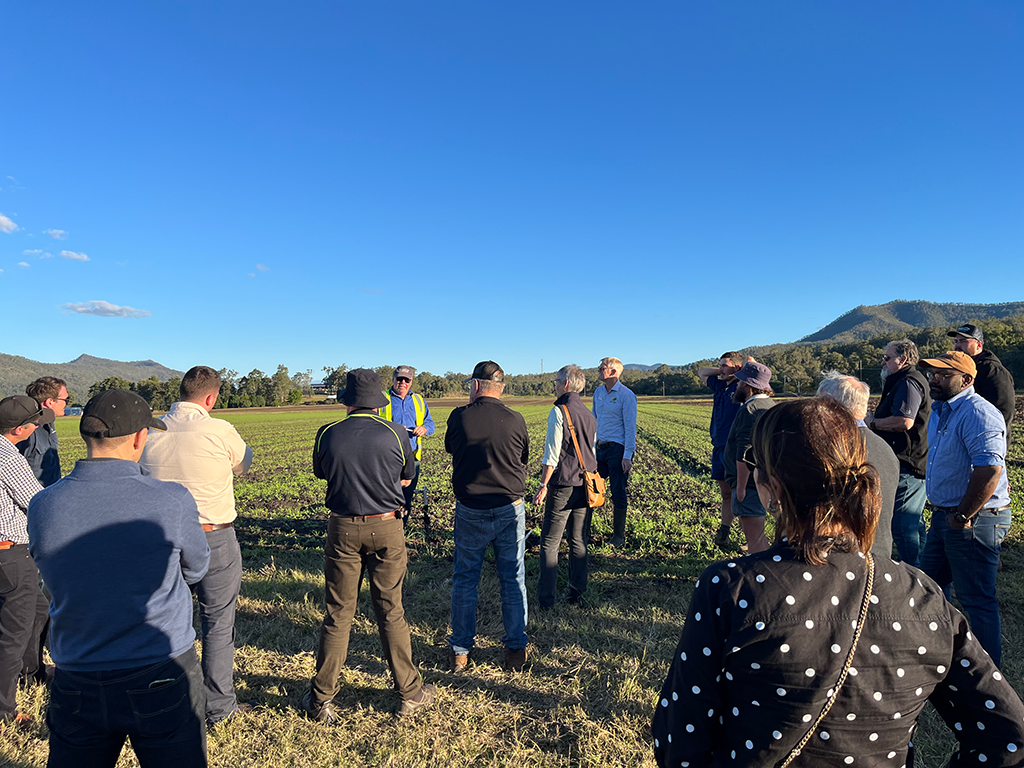
Participants hearing from Andrew Johanson about improved farming practices and the cover crop planted at Mulgowie Farming Company.
Feedback
The masterclass provided a comprehensive understanding of soil biology and its importance and impact on soil health. Participants appreciated the combination of theoretical sessions, practical visits, and workshops, and the opportunity to enhance their knowledge as well as networking with industry experts and fellow participants.
Participants expressed their intent to apply the knowledge gained in their respective businesses, citing practical soil checks, inoculation of legumes, applying key principles for improving soil health, the role of soil organic matter, and the rules of thumb discussed during the masterclass as some of the main take home messages.
As soil biology remains a dynamic and evolving field, we look forward to hosting similar events in other regions in the future. Expressions of interest are welcome; please contact Stephanie Tabone, [email protected]
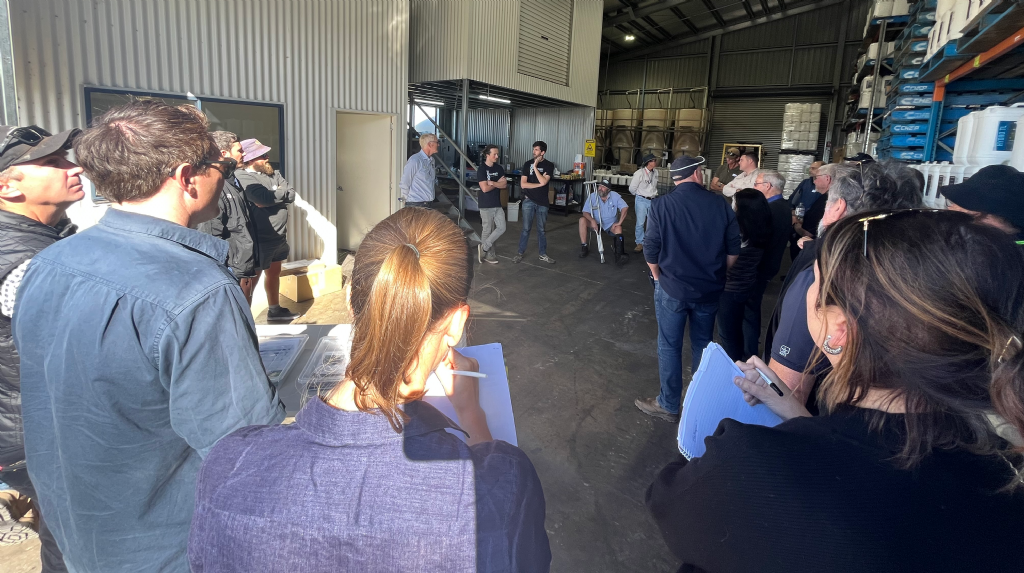
Participants hearing from Neil Wilson (Metagen) about their soil biology testing capabilities and processes.

